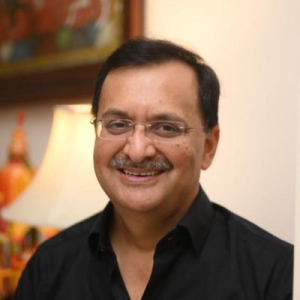Everything is television

A couple weeks ago, I wrote about the evolution of our behavior with television – or “the idiot box.” My hypothesis was that the cause for the global decline in intelligence could be attributed to the fact that we now get to carry this box in our pocket.
Derek Thompson had a beautiful articulation of this in his post – “Everything is television.” A few excerpts –
Social media: Social media has evolved from text to photo to video to streams of text, photo, and video, and finally, it seems to have reached a kind of settled end state, in which TikTok and Meta are trying to become the same thing: a screen showing hours and hours of video made by people we don’t know. Social media has turned into television.
Podcasts: But the most successful podcasts these days are all becoming YouTube shows. Industry analysts say consumption of video podcasts is growing twenty times faster than audio-only ones, and more than half of the world’s top shows now release video versions. YouTube has quietly become the most popular platform for podcasts, and it’s not even close.
Sora and Vibes: Even the architects of artificial intelligence, who imagine themselves on the path to creating the last invention, are busy building another infinite sequence of video made by people we don’t know. Even AI wants to be television.
Too much television: One implication of “everything is becoming television” is that there really is too much television—so much, in fact, that some TV is now made with the assumption that audiences are always already distracted and doing something else. Netflix producers reportedly instruct screenwriters to make plots as obvious as possible, to avoid confusing viewers who are half-watching—or quarter-watching, if that’s a thing now—while they scroll through their phones.
Perhaps a great deal of television is not meant to absorb our attention, at all, but rather to dab away at it, to soak up tiny droplets of our sensory experience while our focus dances across other screens. You might even say that much television is not even made to be watched at all. It is made to flow. The play button is the point.
Gen Z: For five straight years, Gen Z has told pollsters that the thing they most want to be when they grow up is an “influencer.”
Inwardness: When literally everything becomes television, what disappears is not something so broad as intelligence (although that seems to be going, too) but something harder to put into words, and even harder to prove the value of. It’s something like inwardness. The capacity for solitude, for sustained attention, for meaning that penetrates inward rather than swipes away at the tip of a finger: These virtues feel out of step with a world where every medium is the same medium and everything in life converges to the value system of the same thing, which is television. I don’t have the answers here. But we should figure it out soon. The marble is still spinning, but it is reaching the bottom of the bowl.
Indeed.


.jpg)







